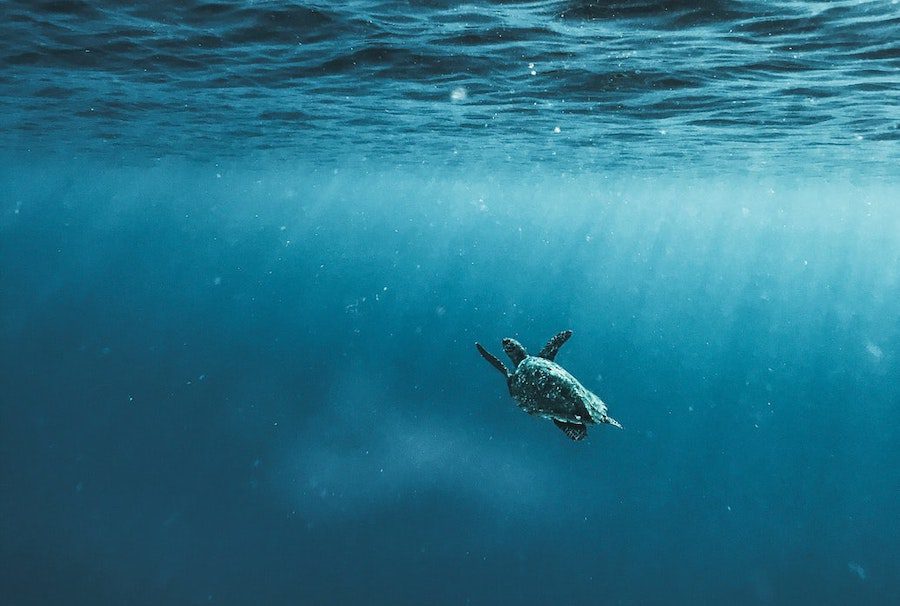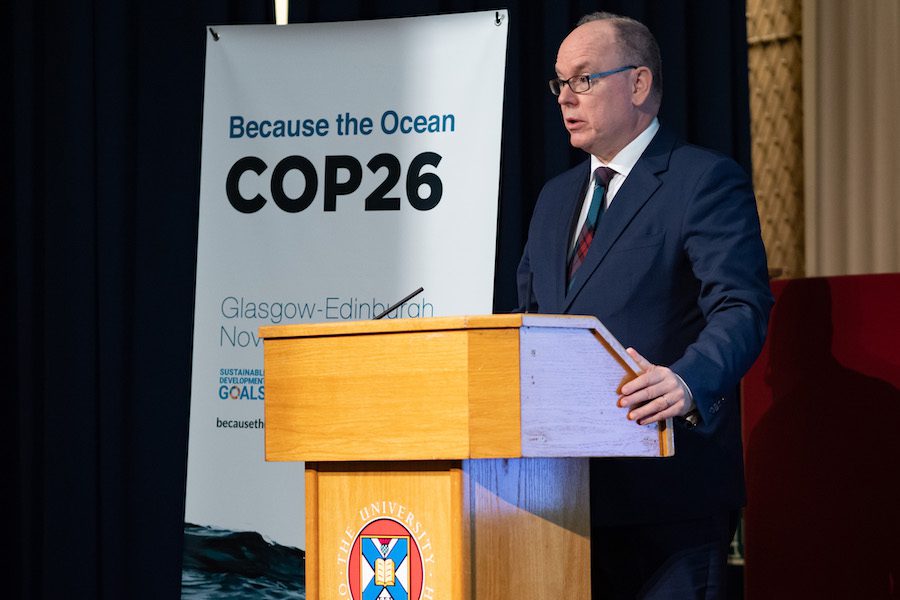After six years of effort spearheaded by the Prince Albert Foundation, the oceans have now been firmly added to the list of ecosystems to protect in the Glasgow Climate Pact, signed during the COP26 summit.
A solid victory has been won for the seas in the aftermath of the COP26 summit in Glasgow. The work done by the association ‘Because the Ocean’, of which the Prince Albert II of Monaco Foundation is a founding partner, has paid off in spades with the inclusion of the seas into the Glasgow Climate Pact, which was adopted on 13th November.
The pact confirms “the importance of ensuring the integrity of all ecosystems, including forests, the ocean and the cryosphere, and the protection of biodiversity”. This small concession is a major step forward in the fight to preserve the seas.
In Paragraph 60 of the agreement, the relevant work programmes and constituted bodies under the United Nations Framework Convention on Climate Change (UNFCCC) were asked “to consider how to integrate and strengthen ocean-based action in their existing mandates and work plans and to report on these activities within the existing reporting processes.” It goes on to say in Paragraph 61 that the Chair of the Subsidiary Body for Scientific and Technological Advice is also invited “to hold an annual dialogue, starting in June 2022, to strengthen ocean-based action and to prepare an informal summary report thereon and make it available to the COP”.
On 31st October, the first day of the COP26 conference, Prince Albert II launched the third ‘Because the Ocean’ declaration alongside several world leaders at a special event held at Edinburgh University. The declaration called for more acknowledgement of the links between the seas, climate and biodiversity, as well as appeals for ambitious measures to be put in place to combat global warming and protect the oceans.
Some of the highlights were calls to phase out greenhouse gas emissions from international shipping, promoting further development of clean offshore renewable energy sources, and the strengthening of both private and public support for climate adaptation and mitigation in the oceans. The final note declared that those who sign up must commit to working with the Intergovernmental Panel on Climate Change (IPCC) to achieve these lofty goals.
A plurilateral initiative in favour was signed by the governments of Australia, Belgium, Canada, Chile, Columbia, Costa Rica, Dominican Republic, Fiji, Guatemala, Honduras, France, Indonesia, Ireland, Norway, Panama, Spain, Seychelles, Sweden, the UK, and Monaco.
This was a follow up on the COP25 mandated Ocean and Climate Dialogue held in December 2020, where it was universally recognised that this event should not be a “one-off”, but a first step in cementing ocean protection linked to climate into the general overall rhetoric. The direct result is that the Glasgow Climate Pact decided to hold annual ocean and climate meetings as a matter of course from 2022.
Ongoing ocean climate discussions give the opportunity to share lessons learned, challenges faced, and offers a direct forum to talk about direct financing options, as well as technical assistance in support of sustainable solutions.
Talks also allow more concentrated ways to combine process and practice for a better understanding of how the ocean, climate change and biodiversity are inextricably linked and therefore must be considered not as separate parts, but as a whole. Collaboration is essential to make this work, say the advocates, and ocean-based solutions must be integrated into the Nationally Determined Contributions (NDCs), National Adaptation Plans (NAPs) and other UNFCCC processes.
This has been seen as a big leap forward by some ocean activists, but it still falls short of solid plans toward the 1.5ºC target agreed to in the Paris Agreement. Prince Albert II expressed regret at this delay, but remains hopeful, declaring that “solutions exist that protect nature and enable advances for mankind.”
SEE ALSO:
Photo by Naja Bertolt Jensen on Unsplash

